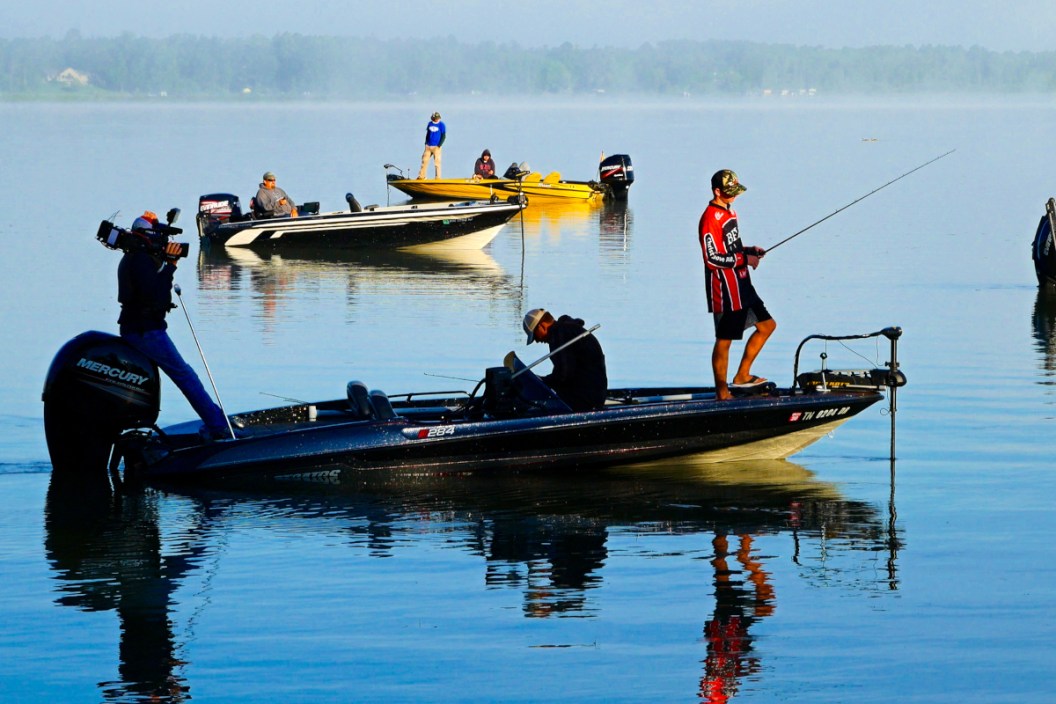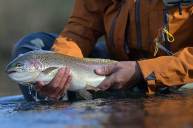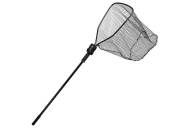There are some things to consider before your first tournament.
Entering your first fishing tournament can be exciting and a lot of fun. After paying your entry fees, you get to enjoy doing the thing you love while also having the chance of a payout of some prize money.
But before the gun goes off to start the tournament, there are some things you need to know.
Taking these factors into account will make sure you're ready the day of the tournament, and will make the whole experience much more pleasant and productive.
Start small
Sure, it's tempting to want to go after the big jackpot right away. You might hear about the Big Rock Blue Marlin Tournament and feel you've got a chance at the nearly $2 million in prizes. But maybe you should fish a smaller tournament first to see if you even enjoy competition. One where you can get in some pre-tournament practice is perfect.
Some anglers are gung-ho about competing, until they try it and find out its not for them. Also, do you really want to blow $1,000-5,000 on entry fees on day one of your tournament career?
Some tournaments, like the Bisbee's Black Marlin Tournament, start with entry fees of $5,000 per boat! Even freshwater tournaments at the pro level can get ridiculous. Bassmaster tournaments, for example, start with entry fees around $1,500! Let's make sure you enjoy competition before you fill out that entry form shall we?
Start with a smaller, independent tournament. Maybe you start with something as simple as a week-long "biggest bluegill" tourney at the local hardware store. Then you can work your way up from there.
Read the rules
It may be tedious, but this is something you must do. Because every fishing tournament is different and some of them may have some quirks in the rules that aren't obvious until you read the fine print. For instance, some tournaments might have some sections of water marked as off-limits to all angling during competition. Others may have severe dead fish penalties. Don't forget to look at the boating rules too. Some tournament committees will have strict regulations all boaters must follow while traveling across the lake. No wake areas and things like that. You do not want to catch a huge limit of largemouth only to get yourself and your co-angler disqualified because you made a stupid error driving your boat.
Some tournament rules may dictate what tackle, lures and bait are allowed. The last thing you want to do is catch the fish of a lifetime only to be disqualified on a technicality at weigh-in. It's embarrassing, and you're just leaving cash payouts on the table when it happens.
Also, some of the really big money billfish tournaments like the famous White Marlin Open in Ocean City, Maryland, sometimes require winning contestants to submit to a polygraph test before they'll cut you a check with your winnings. Just be aware of that mentality, so it isn't a surprise when it happens.
Some of these same tournaments have stringent requirements on documenting catch and release entries. For instance, the Big Rock Blue Marlin Tournament requires very clear photos or video of your catch and they MUST be on a dedicated camera with a removable memory card and not a cell phone. If the tournament director doesn't feel your evidence is clear enough, you may miss out on some big money.
Other tournaments, like The MidAtlantic Tournament, have huge cash prizes and strict rules on how you can fish. That tournament is a trolling-only tournament.
One common thing that pops up in bass fishing tournaments is the practice of culling smaller fish from livewells for a larger one later. Make sure the practice is even allowed before you do it, or you could be in a for a rude surprise at check-in.
Make sure your boat is in top shape
Some anglers get so focused on prize money and filling out tournament entry forms that they completely neglect to give their boat a good once-over before the day of competition.
There is no worse feeling in the world than to have the competition begin and then have a mechanical problem with your boat that keeps you from competing. You just flushed that tournament entry fee down the toilet.
You and any team members must plan for any contingency in a tournament. Maybe it's a bass tournament where the fish are suspended in deep water offshore. What are you going to do if your fish finder suddenly goes out and you can't locate them? What will you do if your livewell pump stops aerating the water?
Don't overlook even the simplest of things. Make sure your fuel is topped off and make sure you have enough safety gear on board in case the Coast Guard or DNR decides your boat needs a surprise inspection. Having a violation could hold you up for a long time, costing your valuable fishing time. Also, it's just a smart idea to be safe when there are lots of boats on the water.
Make sure your cell phone is fully charged in case you need to contact tournament officials or call in an emergency. On that note, also make sure you have numbers to contact them saved in your phone ahead of time. It's not a bad idea to have one of those cellular phone power banks on hand to charge your phone. I picked one up for $12, and it provides some good peace of mind for keeping your phone powered.
The best tournament anglers always expect the unexpected, and that is why they are so successful year in and year out.
Make sure your scales and rulers are accurate
This may seem obvious, but anglers have missed out on big fish before because there wasn't a certified scale on hand. Just ask Rodney Ply.
In 2012, Ply entered Mustad Hook's "Hook-a-Million" contest that paid out $1.1 million to any angler who caught a world record with Mustad Hooks.
Well, Ply caught a potential world record striped bass on Bull Shoals Lake in Arkansas. When he finally got the fish in, they rushed it to a marina scale where it weighed in at 68 pounds. For perspective, that blows the old record out of the water by more than four pounds!
There was just one problem. The marina scale was uncertified. Ply and an Arkansas Game Warden spent the next eight hours trying to track down a certified scale. By the time they did, the fish had lost critical weight and was no longer a record. Ply later sued the IGFA on the matter since the marina scale was later tested and shown to be accurate. But in the eyes of the IGFA and Mustad, that didn't matter. The prize went to someone else. We can't even begin to imagine how devastating that must have been.
So, no matter what kind of tournament you are fishing, whether it is a week-long extravaganza or a one-day tournament, make sure your measuring gear is up to snuff ahead of time. You never know when your digital scale may help you gain one or two critical ounces to help you fend off your competition and come home with the top prize!
Bring a sense of sportsmanship
Some fishermen and women get so wrapped up in the competition and prize money that they miss the fact that this is supposed to be FUN.
We get it, the stakes may be high, and you may have dropped a lot of money into the competition. The tournament hours may be long and stressful, but don't let the pressure get in the way of your enjoyment.
Whether you come in first place, second place or last place, be sure to congratulate the top finishers if you can. Remember that no one likes a sore loser. By being gracious in defeat, you'll build a reputation for being a good sport and make a lot more friends in the process. Also keep in mind that if you want to make a career on the fishing tournament scene, first impressions are everything. Especially if you are looking for sponsors down the line. Talk to any pro and you will learn that none of them got where they were without some struggles, and without losing a few tournaments along the way. It is part of journey.
Whatever your reasons for entering, by making fun your top priority in a tournament you are always guaranteed to have a good time no matter where you finish.
For more outdoor content from Travis Smola, be sure to follow him on Twitter and check out his Geocaching and Outdoors with Travis YouTube channels.
NEXT: HOW TO ESCAPE THE MOST CROWDED FISHING SPOTS AND FIND SOME PEACE AND QUIET
WATCH





